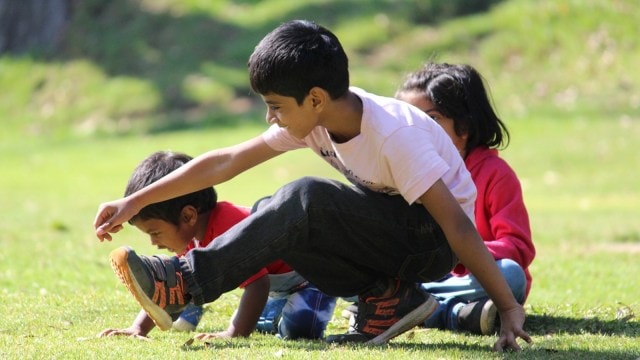
Written by Abhimanyu Khosla
For as long as our children were in the house, we never asked them about homework or test scores at the dinner table. The time was reserved for conversations. We spoke of capitalism, Marxism, feminism and any “ism”. We would debate and discuss politics, history, ideologies and news. In this, raising our daughter and son was similar. But it is, of course, not the same thing.
With our daughter, we worry for her safety, her autonomy, and her place in a world that still makes women fight for what should be their right. With our son, we worry about whether he will be able to grow into a man uncorrupted by the poisons of patriarchy and fundamentalism.
Boys, especially in all-boys schools where “banter” hardens into bias, are particularly vulnerable. They parrot what they hear at home, on television, or online as if they were gospel. To make it worse, the digital algorithm amplifies the most provocative voices. In such a world, how does a parent raise a child to think independently and critically? Our tool of choice was not a lecture, but the Socratic method.
If our children were to casually make a remark that was remotely problematic, take, for instance, a blanket statement like “women are bad drivers” from our son while teasing his sister, or, “… but studies show most women are bad at math” from our daughter after a disappointing test result, our response was never scolding or denial. We would approach the statement with the clinical vigour of a scientist studying a hypothesis. We would ask, “Why do you think so?” Our son might reason that his mother and sister are not confident behind the wheel. We would concede that it is true, but then, we would remind him that his cousins, also women, are excellent drivers. He might concede that one example does not make the rule, but the debate is never truly over. Later, at dinner, his sister, stewing at the earlier slight, might cite a report that women are in fewer accidents than men, ergo, they are better drivers. He may counter that there are fewer women drivers, making it an unfair comparison. “Why do you think that is?” we would ask. We would then go on to list lack of opportunity, means, socialisation, and the theory that the stereotype itself was a narrative peddled to keep women from being independent. Soon, we would be discussing whether logic, empathy and artistic flair are decided by biology or by centuries of socialisation.
Children tend to be stubborn and rarely change their minds mid-argument. But they think later. We consciously made an effort to nudge them towards critical thinking. What good would it do if we force them to agree to something, or tell them they are too young to understand, or that it is the way it is?
Every Indian generation has heard the phrase “agar wo kuwein mein kudega toh tum bhi kud jaoge (if he jumps into a well, will you follow)?” Peer pressure is dangerous, especially because children are rarely taught how to break away from the herd or to think for themselves or question authority, be it a teacher who casually sprouts his own prejudice, a senior or a friend. Therefore, we encouraged children to always question everything, especially any and all blanket statements. We encouraged them to question everybody, including us, but always with well-reasoned arguments, respectfully and without raising their voice.
The first lessons in being a civilised human being begin with language. “Please”, “thank you”, “may I”— these are habits of respect. Teaching a child to accept “no” is as important as teaching them to ask nicely. These are the early, foundational lessons in consent and humility that shape them long before the world tests them. When our children were little, they once got into a physical scuffle. A relative intervened: “Boys don’t hit girls.” To a toddler, this was bewildering. But why? My son asked, genuinely perplexed. Why should her gender shield her from consequence? Why should his condemn him to restraint? What was wrong about hitting his much bigger, older sister when she started it first? I stepped in to say that neither should be hitting the other. Hitting is always wrong.
We tried to raise both our children in the school of humanism. We could not control what they saw online or heard from friends, but I could curate what they encountered at home: A thoughtful article, a film watched together, a lively conversation around the dinner table.
We never nagged them to study and encouraged them to be accountable to themselves first, and they were. Now that our children are adults – our son is in university and our daughter has been a working professional for close to a decade – they know they are accountable for their own lives, decisions and actions.
Raising a boy, then, is not about protecting the world from him or him from the world. It is about helping him grow into a man who listens and questions, who stands up for what he believes is right. It is a slow project of evolving together, one question at a time. In that process, I have found, parents learn as much as the child.
The writer is a retired bank officer from Shimla